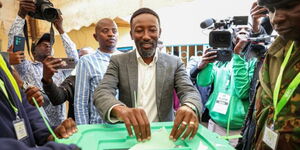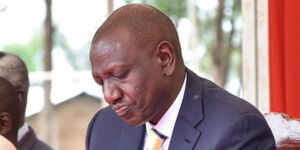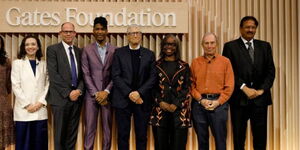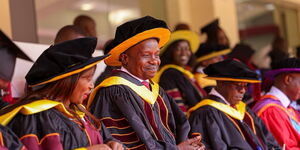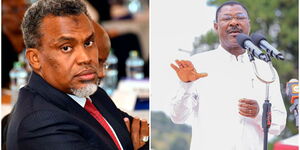The Kenya Defence Forces (KDF) has expressed concern over reduced funding for key peacekeeping missions, warning that the cuts could undermine ongoing regional and global stability operations.
Speaking during the 2025 United Nations Troop Contributing Countries (UNTCC) Army Chiefs Conclave in New Delhi, India, Kenya Army Deputy Commander Major General Mohamed Hassan noted the challenges that troop-contributing nations face amid the funding constraints.
He noted that Kenya, a long-standing contributor to global peacekeeping, has witnessed firsthand the impact of inadequate resources on mission effectiveness.
Major General Hassan emphasised that Kenya remains committed to promoting peace and stability across Africa and beyond but stressed the need for reforms to make peacekeeping more responsive to modern challenges.
Additionally, he revealed that the current financial shortfalls affecting the African Union Support and Stabilisation Mission (AUSSOM) have hindered operational efficiency and weakened the ability to sustain security gains.
“As one of the longest-serving troop-contributing countries, Kenya’s experience has shown us that the future of peacekeeping depends not just on the number of troops, but on rethinking our approach to mandates, partnerships, lasting political solutions, and adequate funding,” Maj Gen Hassan stated.
The Kenyan contingent of about 3,000 soldiers first set foot in the neighbouring country in 2011 under Operation Linda Nchi following parliamentary approval under the leadership of the then President Mwai Kibaki.
The mission changed from AMISOM (African Union Mission in Somalia) to ATMIS (African Union Transition Mission in Somalia) on April 1, 2022, with the change being part of a planned transition to a new mission with a phased withdrawal of forces.
Meanwhile, the three-day conclave brought together senior military leaders and defence officials from across the world to explore ways to enhance peacekeeping operations through technology, interoperability, and shared responsibility.
The discussions focused on strengthening coordination among nations and adopting innovative tools to improve mission safety and effectiveness.
On the sidelines of the meeting, the Kenyan delegation held bilateral talks with representatives from the Indian Army to deepen military cooperation.
Additionally, the Director of the International Peace Support Training Centre (IPSTC), Major General Charles Mwazighe, signed a collaboration agreement with the Centre for United Nations Peacekeeping (CUNPK) in India. The deal seeks to enhance training, knowledge exchange, and joint initiatives between the two institutions.

